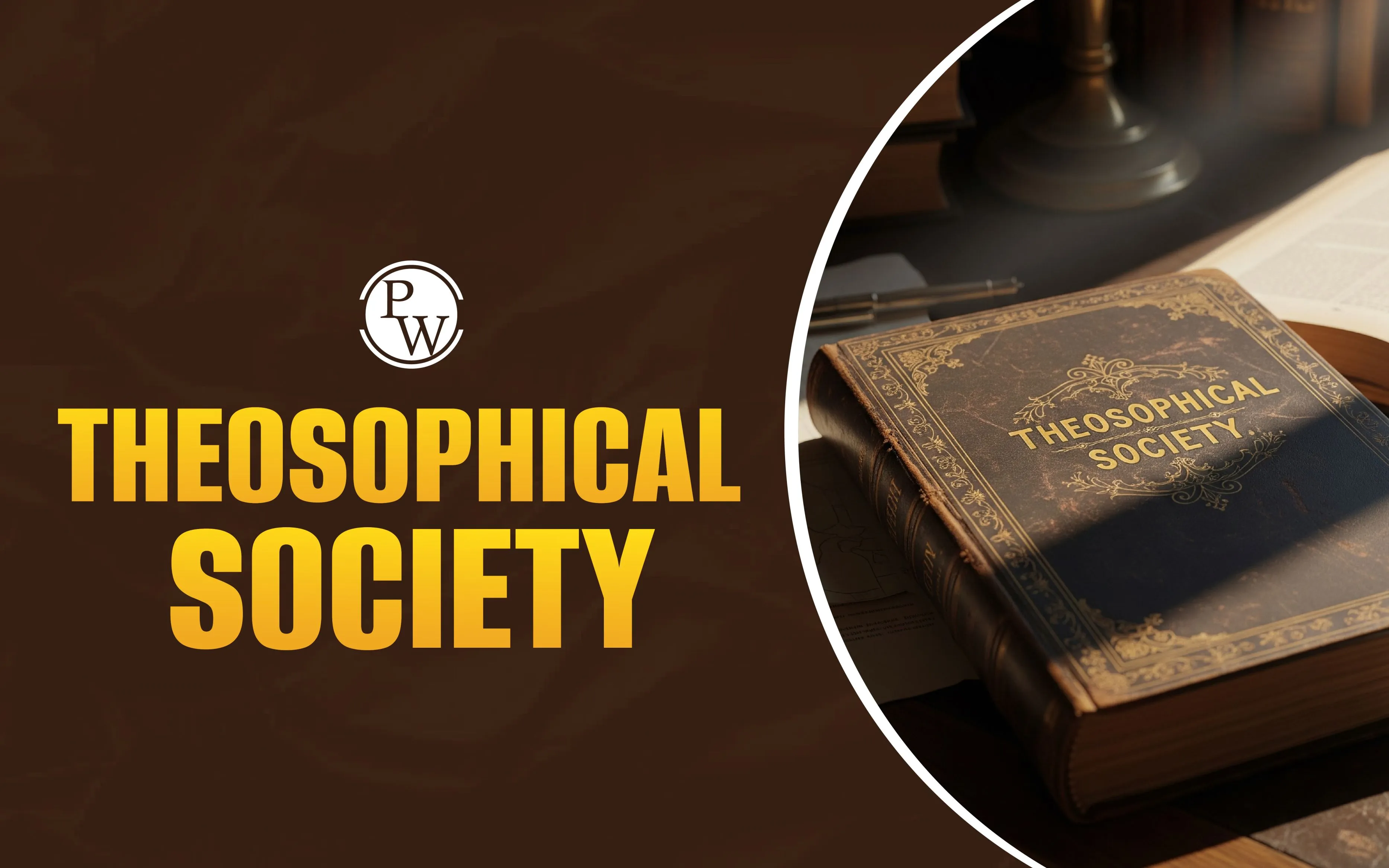
Theosophical Society is a spiritual and philosophical organization founded in 1875 in New York City by Helena Petrovna Blavatsky, Henry Steel Olcott, and William Quan Judge. In India, the Theosophical Society became a bridge between Western and Eastern spiritual ideas and inspired many leaders of India’s freedom movement while encouraging a reawakening of Indian identity.
Theosophical Society played a significant role in the Indian Renaissance and the revival of ancient Indian spiritual thought. Founded in the 19th century, this society aimed to blend science, philosophy, and religion. It believed in the unity of all life and the need for universal brotherhood.
During British rule in India, the society supported the cultural awakening of India by promoting Hindu philosophy and encouraging self-respect among Indians. Its leaders were influential in bringing global attention to India's ancient wisdom.
| Theosophical Society - Overview | |
| Founded | 1875, New York City |
| Founders | Helena Petrovna Blavatsky, Henry Steel Olcott, William Quan Judge |
| Headquarters | Adyar, Chennai (Madras), India (since 1882) |
| Objectives |
|
| Key Beliefs | Unity of all life and humanity, the Importance of compassion and understanding |
| Contribution in India | Revival of ancient Indian texts (Upanishads, Vedas), promoted national pride and modern nationalism, Social reform, education, and women’s rights. |
| Notable Leaders | Madame Blavatsky (early leader), Annie Besant (later leader, popularized in India) |
| Significance | Played a role in Indian Renaissance, cultural revival, and intellectual awakening |
The Theosophical Society was founded on 17 November 1875 in New York City, USA. Its founders were Helena Petrovna Blavatsky, a Russian occultist and philosopher, and Colonel Henry Steel Olcott, a former American military officer, and William Quan Judge. The founding members were deeply interested in spiritual studies, ancient religions, and esoteric knowledge.
Madame Blavatsky brought her knowledge of Eastern religions, while Colonel Olcott focused on organisational work and spiritual studies. In 1879, they moved the headquarters to India. Later, Annie Besant, an Irish social reformer, became the most prominent leader of the movement in India. Theosophy aimed to explore divine wisdom found in all religions and rejected blind belief, and encouraged comparative studies of philosophies and traditions.
The Theosophical Movement had specific goals to awaken human consciousness and unite people beyond religion, race, or caste. The main objectives were:
To form a nucleus of the universal brotherhood of humanity, without distinction of race, creed, sex, caste, or colour.
To encourage the study of comparative religion, philosophy, and science.
To investigate the unexplained laws of nature and powers latent in humans.
The movement believed that truth could be found in all religions and that no religion is superior to another. It inspired people to study ancient scriptures, understand their meaning, and reconnect with spiritual roots.
Theosophical Society came to India in 1879. It first set up its headquarters in Bombay and later moved to Adyar, Chennai (then Madras) in 1882, where it still exists. India became the spiritual centre of society, and many of its activities focused on India’s cultural revival.
Annie Besant joined the society in 1889 and played a major role in its Indian chapter. Under her leadership, the society became active in social reform, education, and the freedom struggle. She established the Central Hindu College in Benares, which later became the Banaras Hindu University. The Theosophical Society in India worked to:
Promote education among Indian women.
Support ancient Indian scriptures and philosophies.
Inspire nationalist feelings among Indians through pride in their culture.
Encourage self-rule (Swaraj) and self-confidence.
Its role during the Indian Renaissance helped awaken a national consciousness that eventually contributed to the independence movement.
Below are some of the key contributions of the Theosophical Society of India:
Educational Reforms: Annie Besant established educational institutions that combined Indian tradition with modern education. Schools under society promoted ethical values, patriotism, and spiritual thinking.
Social Reforms: The society opposed caste-based discrimination, promoted the idea of universal brotherhood, and supported widow remarriage and women's rights.
Freedom Movement: Annie Besant became the first woman president of the Indian National Congress in 1917. Her demand for "Home Rule for India" energised the freedom struggle. She also launched the Home Rule Movement in 1916.
Cultural Revival: The Theosophical Society revived interest in ancient Indian scriptures such as the Vedas, Upanishads, and Bhagavad Gita. This helped Indians rediscover the depth of their own cultural identity.
Promotion of Interfaith Understanding: The society encouraged dialogue between religions. It believed that all religions have elements of truth and that unity is possible through shared spiritual values.
The legacy of the Theosophical Society lives on in modern India. Its contributions to education, social change, and spiritual development are widely recognised. The society laid the foundation for intercultural understanding, religious tolerance, and moral education.
Many national leaders, including Mahatma Gandhi and Bal Gangadhar Tilak, were influenced by the ideals promoted by the society. It nurtured a generation that believed in India's spiritual greatness and its right to self-govern.
Today, the Theosophical Society continues its work through its headquarters in Adyar and other global branches. It organises conferences, lectures, and training sessions on spiritual and philosophical topics and also runs schools and colleges that carry forward its vision.
Explore the impact of such historic movements and boost your UPSC preparation. Join PW’s UPSC Courses today!
